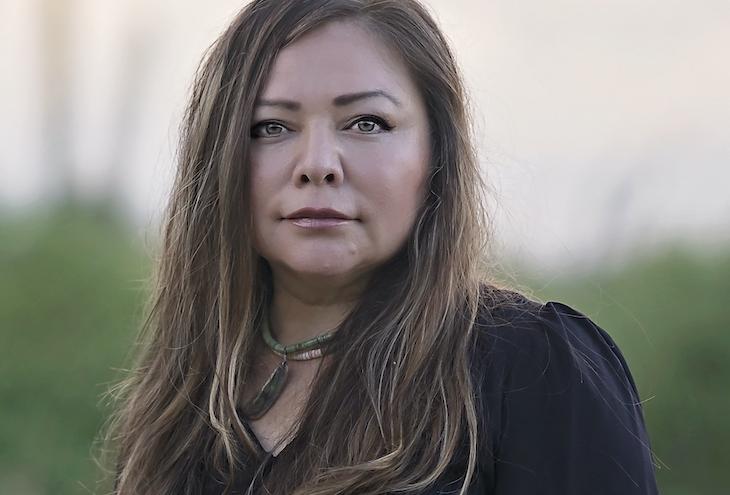When Rachel Yellowhair was growing up in the Navajo Nation in Arizona, she didn’t have role models who could paint a picture of what a career in medicine, engineering, or some other STEM field could look like. Still, there were teachers and employees at the coal mine where her father worked whom Yellowhair noticed. “Those are all careers to be commended,” Yellowhair says. “But they were the only role models when I was growing up. I didn’t have a doctor or an engineer or an architect who could say, ‘I’m a Navajo and you can do this too.’”
Fortunately, Yellowhair had important influences that helped her grasp just how important education is in creating a better life. Her father, who worked as a mechanic at the coal mine, was particularly insistent. “He always talked about how I needed to get my college education,” says Yellowhair, this year’s winner of the Blazing Flame Award.
Life circumstances also reinforced the importance of higher education. When Yellowhair was a sophomore in high school, her father passed away from a work accident. Yellowhair saw how her mother struggled to provide for four kids. “Watching that and hearing my father’s words led me to vow not to have kids until after I got a degree,” she says. “I didn’t want to put myself in that difficult situation, and the only way I knew how to do that was to go to college.”
Yellowhair’s journey from the time she fully grasped the importance of higher education to securing bachelor’s and master’s degrees to a successful career at Raytheon Technologies (RTX) has been anything but easy. Sharing the many ups and downs of her personal story is something she has prioritized in her extensive work with the RTX Alliance of Indigenous Nations and in mentoring students at the Navajo and Tohono O’ohdam reservations. “I share my true story, the whole thing. I failed a lot and didn’t have it easy, and it was hard,” Yellowhair says.
She is unflinchingly honest because it’s a way to provide a model to Native students who may waver in their commitment to pursuing higher education when things inevitably get difficult. Yellowhair provides an example of perseverance.
It’s a story full of contrasts. After her junior year, Yellowhair was chosen to go to the prestigious Oceanographic Institution in Massachusetts for a summer program. While there, she gained valuable insights about science and engineering from a diverse international group of professionals. However, she faced stubborn stereotypes from the same people who were mentoring her. “I got the feeling they saw us as living in tepees and riding horses to the airport,” she recalls. “A lot of those stereotypes were deeply embedded.”
Back at home Yellowhair was struggling to cope with her father’s death, though she still managed to post grades that kept her in the National Honor Society. Her record was good enough to gain admittance to the University of Arizona, where she thought she wanted to study aerospace engineering.
Yellowhair struggled at the university and eventually dropped out to work at a nursing home. The time away eventually refocused her on the need to earn her degree. “The second time I went, I wasn’t lost anymore,” recalls Yellowhair, who earned a BS in mathematics and minored in computer science. “It was the best time of my life.”
Yellowhair joined RTX right after graduation in 2001, in large part because the founders of RAIN came to a UA AISES meeting to talk about their jobs. Since joining the company, Yellowhair has held a variety of technical and managerial positions, including systems administrator, systems analyst, and systems integrator. Today Yellowhair is a senior manager overseeing digital technology operations and activities, a job that involves leading a team to support about 13,500 RTX employees across several business locations in the west region of the United States.
Her levels of responsibility may have steadily increased, but her work responsibilities have not kept Yellowhair from volunteering thousands of hours to tutor and mentor Native students, many of whom face challenges similar to the obstacles she faced. In that work, she has been supported by her son, Athens, who helps demo new technologies. In his own way, Athens provides a model of what it means to be technologically proficient. “He was helping demo AR (augmented reality) equipment and setting the older kids up,” she says. “He was doing things faster technologically than I could, and he was 10.”











